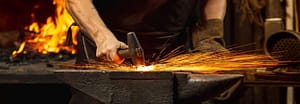
| 1. Introduction to Driveway Gates | Importance of driveway gates, Overview of styles and types, Benefits of installing driveway gates |
| 2. Types of Driveway Gates | Swing gates, Sliding gates, Bi-fold gates, Automatic gates, Manual gates |
| 3. Materials Used for Driveway Gates | Wrought iron, Wood, Aluminum, Steel, Vinyl |
| 4. Factors to Consider When Choosing a Gate | Gate size, Material durability, Cost considerations, Maintenance requirements, Security needs |
| 5. Pros and Cons of Wrought Iron Gates | Benefits of wrought iron gates, Drawbacks, Ideal settings for wrought iron gates |
| 6. Wooden Driveway Gates | Styles of wooden gates, Benefits, Downsides, Best use cases |
| 7. Aluminum and Steel Gates | Comparison of aluminum and steel gates, Benefits, Ideal scenarios |
| 8. Security Features for Driveway Gates | Locking mechanisms, Keypads and keyless entry, Surveillance integration, Child and pet safety features |
| 9. Choosing Between Manual and Automatic Gates | Key differences, Pros and cons of each, Budget considerations |
| 10. Installation Process for Driveway Gates | Steps for installing a driveway gate, Considerations for different gate types, Professional installation vs. DIY installation |
| 11. Cost of Driveway Gates | Price range by material, Cost of manual vs automatic gates, Installation costs, Maintenance cost overview |
| 12. Maintenance Tips for Driveway Gates | Routine care and cleaning, Seasonal maintenance tips, Troubleshooting common issues |
| 13. How Driveway Gates Enhance Property Value | Ways driveway gates add curb appeal, Security as a value addition, Increased privacy |
| 14. FAQs About Driveway Gates | Common concerns about driveway gate installations, Usage, Durability |
| 15. Conclusion | Recap of key points, Final considerations when choosing a driveway gate |
Driveway Gates: Comprehensive Guide to Secure, Stylish, and Durable Options
Introduction to Driveway Gates
Driveway gates provide a balance of style, security, and privacy, enhancing curb appeal while safeguarding homes and properties. From various types to numerous materials, driveway gates have become a go-to for homeowners looking to combine functionality with a touch of elegance. This guide will walk you through the essential aspects of driveway gates, covering types, materials, security options, installation considerations, and more to help you make an informed decision.
Types of Driveway Gates
- Swing Gates: A classic and elegant choice, swing gates are suitable for wide-open spaces. They open either inward or outward, depending on the layout of the property.
- Sliding Gates: Ideal for properties with limited space, sliding gates are mounted on tracks, allowing them to slide horizontally along the property line.
- Bi-fold Gates: This style is especially convenient in tight spaces as they fold in the middle, opening without the need for extensive clearance.
- Automatic Gates: Perfect for those seeking convenience and enhanced security, these gates come with various control options, from keypads to remote control.
- Manual Gates: While lower in cost, manual gates require more effort to operate and are best suited for properties with lower traffic.
Materials Used for Driveway Gates
Choosing the right material impacts not only the aesthetic but also the longevity and functionality of your driveway gate.
- Wrought Iron: Known for its durability and ornate designs, wrought iron is ideal for homeowners prioritizing style and security.
- Wood: Natural and customizable, wooden gates add warmth and elegance but may require more maintenance.
- Aluminum: Lightweight, durable, and resistant to rust, aluminum gates are low-maintenance and work well in humid climates.
- Steel: Stronger than aluminum, steel gates offer increased security and resilience, though they may be more prone to rust.
- Vinyl: A low-cost, low-maintenance option, vinyl gates are often chosen for budget-conscious projects but may lack the durability of metal options.
Factors to Consider When Choosing a Gate
Several factors influence the type and style of gate that best suits your needs.
- Gate Size: Consider the width of your driveway and how much space is available for the gate to open.
- Material Durability: Depending on your climate and maintenance preferences, some materials are more suitable than others.
- Cost Considerations: Materials and automation features vary widely in price. Consider long-term maintenance costs in addition to upfront costs.
- Maintenance Requirements: Wood requires regular sealing, while iron needs rust protection. Choose a material that matches your maintenance abilities.
- Security Needs: If security is a top priority, consider materials and designs that offer durability and protective features like keyless entry.
Pros and Cons of Wrought Iron Gates
Benefits:
- Highly durable and long-lasting.
- Ornate designs enhance the aesthetic of any property.
- Provides excellent security.
Drawbacks:
- Prone to rust if not properly maintained.
- Often more expensive than other materials.
Ideal Settings: Wrought iron gates are perfect for properties needing high security without compromising on elegance.
Wooden Driveway Gates
Wooden gates offer a natural, customizable option that appeals to homeowners looking for warmth in design.
- Styles of Wooden Gates: From rustic to modern, wooden gates can be stained or painted to suit any architectural style.
- Benefits: Adds a warm, natural look to the property, and can be customized to fit personal style.
- Downsides: Wood requires frequent maintenance to protect against weather and pests.
Aluminum and Steel Gates
Aluminum Gates: Lightweight and resistant to rust, ideal for humid climates. Aluminum gates are also generally low maintenance, though they may lack the strength of steel gates.
Steel Gates: Known for their strength and durability, steel gates offer increased security but may require rust protection.
Security Features for Driveway Gates
Ensuring security with a driveway gate involves more than the material choice.
- Locking Mechanisms: Options include traditional key locks, digital keypads, and even biometric locks.
- Keypads and Keyless Entry: Convenient for frequent use, allowing easy access without compromising security.
- Surveillance Integration: Pairing a gate with surveillance cameras adds an extra layer of security.
- Child and Pet Safety Features: Choose gates with closed-off designs to keep children and pets safely contained.
Choosing Between Manual and Automatic Gates
Automatic gates add convenience and security, though they come at a higher price point. Manual gates, while more affordable, require more effort to operate and may not be ideal for properties with frequent access needs.
Installation Process for Driveway Gates
For most homeowners, professional installation ensures the gate operates safely and efficiently. Installation costs vary depending on the gate type and material.
FAQs About Driveway Gates
1. What is the best material for a driveway gate? For durability and security, wrought iron and steel are ideal. However, wood and aluminum work well for specific climates and aesthetic needs.
For the rest of the content, you would continue with detailed sections on Costs of Driveway Gates, Maintenance Tips, How Driveway Gates Enhance Property Value, and a thorough Conclusion that wraps up considerations for choosing the driveway gate.







